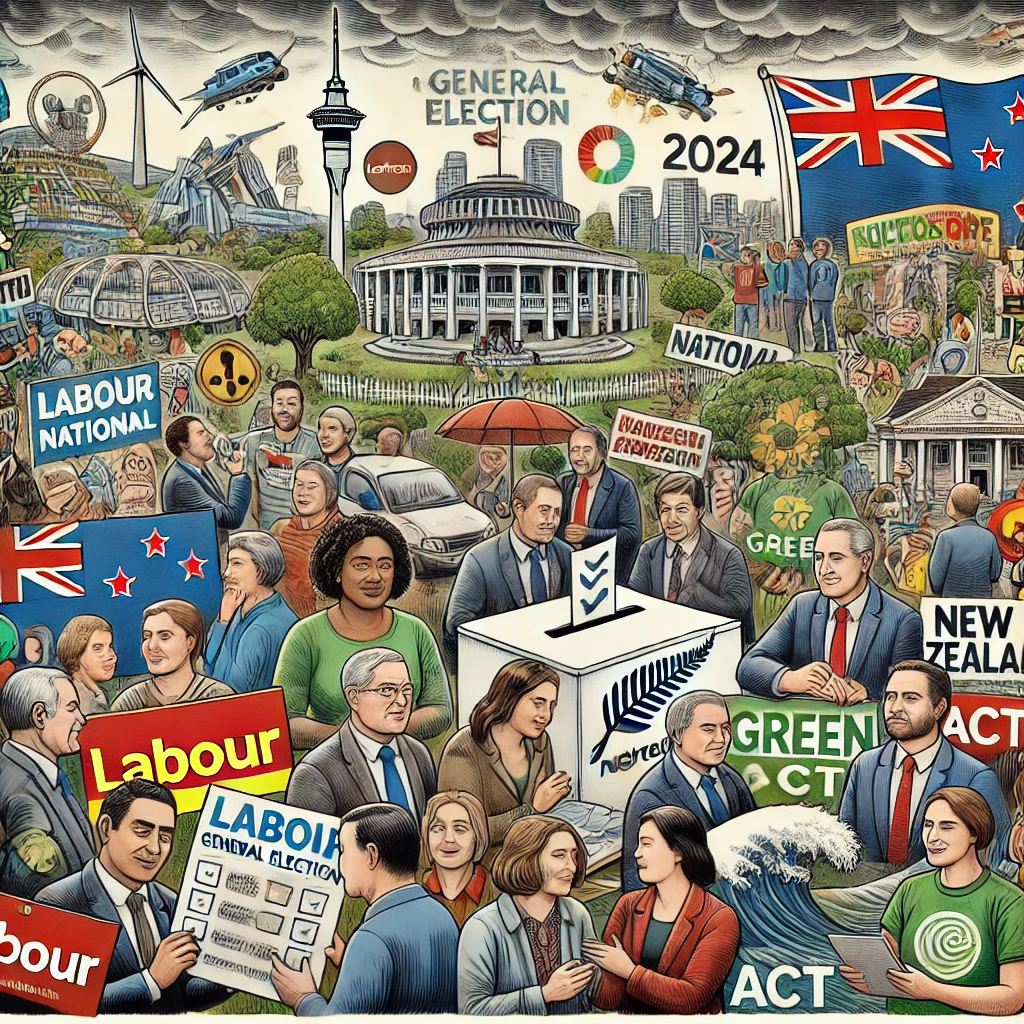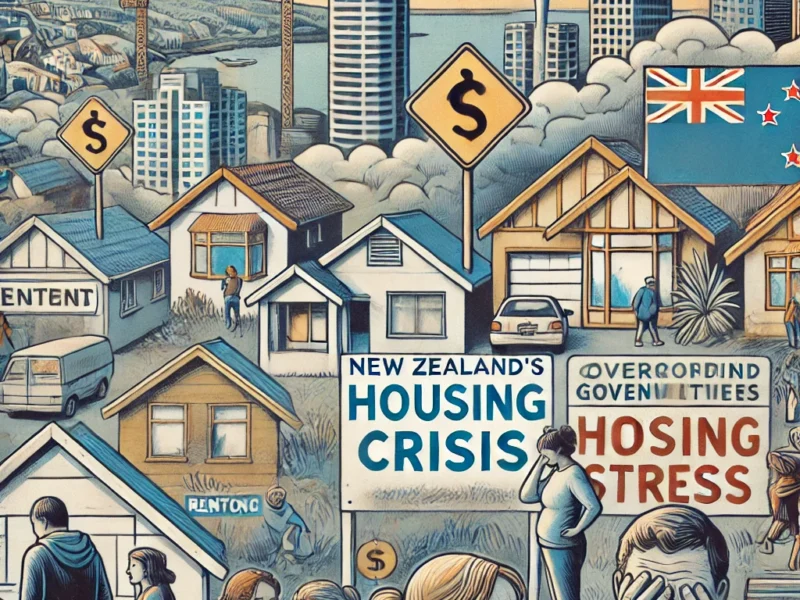As New Zealand approaches its 2024 general election, the nation stands at a crossroads, with the outcomes likely to shape the country’s future for years to come. The election has become a focal point for discussions on a wide range of issues, from housing affordability and healthcare to climate change and economic inequality. With political parties and candidates gearing up for a fierce contest, the stakes have never been higher.
The Political Landscape
The 2024 election is set against a backdrop of shifting political dynamics, with established parties vying for dominance and new players emerging on the scene. The major political parties, including the Labour Party, the National Party, the Green Party, and ACT New Zealand, are all positioning themselves as the best choice to lead the country through its current challenges.
- Labour Party: Currently in power, the Labour Party has focused its campaign on continuity and stability, emphasizing its achievements in managing the COVID-19 pandemic, economic recovery, and social welfare. The party’s leader is advocating for further investment in public services, housing, and healthcare, while also tackling climate change through ambitious green policies.
- National Party: As the main opposition, the National Party is critiquing the government’s handling of economic issues, particularly the rising cost of living and housing crisis. They are promising to reduce taxes, stimulate economic growth, and increase support for businesses. Their platform also includes plans to streamline government services and reduce public spending.
- Green Party: The Green Party is championing progressive policies, with a strong emphasis on environmental sustainability, social justice, and climate action. They are pushing for more aggressive measures to reduce carbon emissions, protect biodiversity, and transition New Zealand to a greener economy. Their platform also includes policies to address inequality, support for public housing, and enhancing social services.
- ACT New Zealand: Known for its libertarian stance, ACT New Zealand is advocating for smaller government, lower taxes, and greater individual freedoms. Their campaign is focused on reducing bureaucracy, enhancing personal responsibility, and promoting free-market solutions to economic challenges. They are also calling for stronger law and order measures and reforms to the education system.
Key Issues at Stake
As voters prepare to head to the polls, several key issues are dominating the political discourse:
- Housing Affordability: The housing crisis remains a critical issue, with many New Zealanders unable to afford to buy or rent homes in major cities. Political parties are proposing various solutions, ranging from increasing the supply of affordable housing to reforming property taxes and regulations. The outcome of the election could have a significant impact on housing policies and the real estate market.
- Healthcare: Healthcare is another major concern, with ongoing debates about how to improve access to quality care, reduce waiting times, and address mental health issues. Parties are presenting different visions for the future of the healthcare system, from increasing funding and expanding public services to introducing private sector involvement and innovative technologies.
- Climate Change: Climate change is a defining issue of the 2024 election, with New Zealand’s response to the global environmental crisis under intense scrutiny. Voters are demanding more action to reduce greenhouse gas emissions, protect natural resources, and transition to renewable energy. The election will likely determine the pace and direction of the country’s climate policies.
- Economic Inequality: Economic inequality has been exacerbated by the COVID-19 pandemic, with many New Zealanders feeling left behind in the recovery. Parties are proposing a range of solutions to address inequality, including tax reforms, social welfare programs, and initiatives to boost employment and wages. The election will be a test of which approach resonates most with voters.
- Immigration and Social Cohesion: Immigration policies and their impact on social cohesion and the labor market are also key topics of debate. Parties are discussing how to balance the need for skilled workers with concerns about housing pressure, cultural integration, and public services.
The Role of Leadership
Leadership is always a critical factor in elections, and the 2024 general election is no exception. Voters are not just evaluating party platforms but also the leaders themselves. Charisma, experience, and the ability to connect with the electorate will play a significant role in determining the outcome. With several high-profile leaders in the race, their performance during the campaign, including debates and public appearances, will be closely watched.
The Election Campaign
The campaign leading up to the election has been marked by intense competition, with parties using a mix of traditional and digital media to reach voters. Social media has become an increasingly important battleground, with parties and candidates leveraging platforms like Facebook, Twitter, and Instagram to engage with the electorate, share their messages, and counter opponents’ claims.
Public opinion polls are providing insights into voter preferences, but the fluid nature of politics means that outcomes are far from certain. Swing voters, undecided voters, and voter turnout will be crucial in determining the final results.
What’s at Stake?
The 2024 general election is more than just a contest between political parties; it’s a decision about the direction New Zealand will take in the coming years. The policies and leadership chosen by voters will shape the country’s economic future, social fabric, and role in addressing global challenges like climate change.
As the election day approaches, the debates will intensify, and the choices made by New Zealanders will reflect their hopes and concerns for the future. Regardless of the outcome, the 2024 general election is set to be a pivotal moment in New Zealand’s history.


